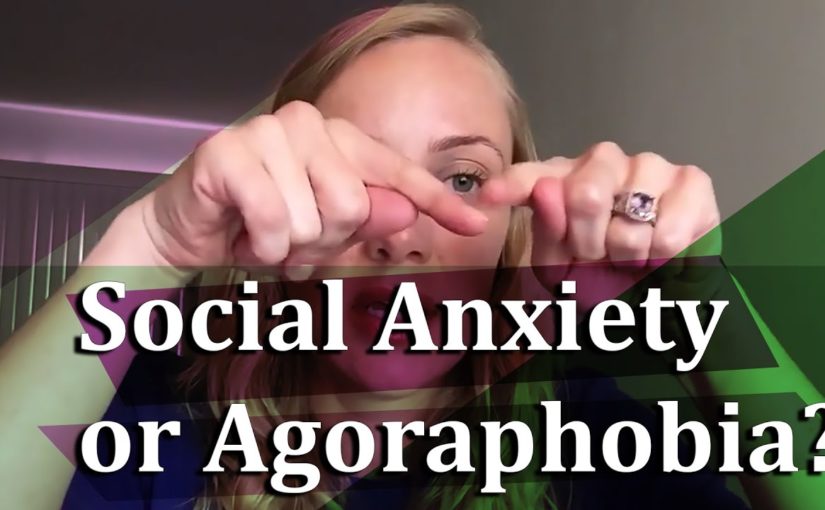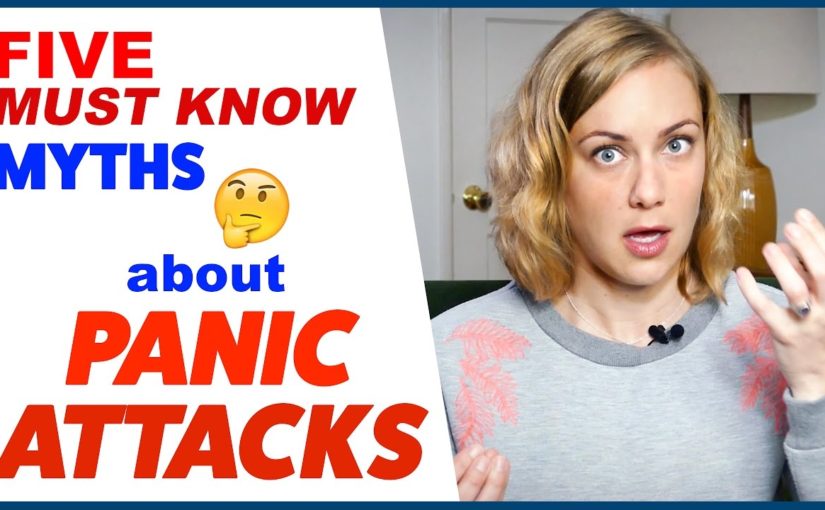Hey everybody. Happy Thursday! And when it's Thursday … what is it? I'm doing an FAQ video or things in the media. There are a lot of things in the media. Many of you have commented. Don't think that I have missed it. But I had a couple of good questions today that I wanted to address. And I've been doing some thinking about videos, and I think I'm going to do my journal topics as separate videos.
I find many of you have let me know that you really like those short, clip videos, where it's just something inspirational to kind of help get you through your day. So instead of doing two videos a week, now I'll do three. And I'll do a, you know, journal topic inspiration. So share your ideas! If there's anything that you've read about, heard about, saw on Pinterest or something tweet it to me, leave it in the comments below. And I shall make a video about that. So today I have two questions, and both of these are really good. So let's get going. First question says, "Hey Kati. First of all very nice video." This person's referring to the agoraphobia video I put out on Monday. If you haven't checked it out, you should check it out.
"I have a question. Describing the disorder you really focused on embarrassment connected to the possibility of getting out of a stressful situation. Does this feeling have anything in common with social anxiety? And if so, what are the main differences?" Because if you remember correctly in my video I talk about agoraphobia being an anxiety disorder. Now the really awesome thing about the DSM … cause I have to put a different book under my thing, because I had to use this to reference … is that it shares with you differential diagnoses, which is really the way of saying how is this different from the other disorders. Because a lot of them seem very similar. How do we differentiate between the two? And it says, I'm gonna read this to you, 'cause I tend to blab so sometimes it's good if I just read you what it says.
So with reference to social anxiety disorder, or social phobia, it says "agoraphobia should be differentiated from social anxiety disorder based primarily on the situational clusters that trigger the fear, anxiety or avoidance, and the cognitive ideation." So in social anxiety disorder the focus is on the fear of being negatively evaluated. If you remember when I've talked about this in other videos, social anxiety is when we fear what other people are thinking of us, what they might say to others about us, that we could be negatively evaluated by them. Agoraphobia is more about trying to get out, having a panic attack, being embarrassed about trying to leave. Now I see how these kind of go together, but you can also see how they're separated. The social anxiety is more about how we're perceived by others, where as agoraphobia is just the fear, like it says the fear or anxiety or avoidance because we worry about how we'll get out if we have a panic attack.
Or that it could be really embarrassing, because we might stumble, like try to get out really quickly. I hope that that makes it clear. If you need more clarification feel free to re-ask the question and I can blab some more. Okay. Question number two, "Hey Kati my therapist told me she'd like me to see a dietician." Uhh, she didn't! "Only I'm not sure I really need it." You never think you do. Sorry I'll stop with my commentary. "I do some eating disorder behaviors, but I still eat enough most days. And the behaviors are only there for a few days, and then I have other behaviors. Different behaviors that switch off and on. And I've only seen my therapist for two times now. And I've only really told her what went wrong. I don't want to waste peoples' time going to a dietician when I don't really need it." This got so much chatter on the website.

Holy schmollies, you guys really had opinions about this. So I thought, let's talk about it. Now seeing a dietician is good. It's something that we can all, all of us who have any kind of eating disorder behaviors. I know you're thinking but I don't really think I have an eating disorder. I only purge sometimes or I only restrict, but it comes off and on. I have a video from like I don't know … any of my OG's out there? It's like two years ago, my original FAQ video. I'm wearing like a teal sweater. It says FAQ on the thumbnail so just search. Well no you can't, because all of my videos would come up. But anyway it says FAQs. One of them is If You Think You Have an Eating Disorder You Probably Do.
Just let that wash over you for a second. Because I know it's hard, and we always think "But it's not that bad. I don't do it all the time. It comes and goes." Eating disorders are sneaky. They like come in, I feel like they're like ink in water, where all of a sudden the water is turned a whole different color. But we're like but it only just started this little. It's crazy. It can get in there, morph, change. As soon as you think you understand where it comes from and what it's doing, it's already changing to something else. And so even when we feel like "it's not bad enough to get more help" we still need to get more help. Because the sooner we get the help, the better. And seeing a dietician, whether we binge, whether we purge, whether we binge and purge, whether we restrict, whether we over exercise.
It doesn't matter. We're using any kind of eating disorder behavior, a dietician can really help. They're not going to make you get fat. They're not gonna make you eat too much food. That's part of their job. They're going to work with you to put together a plan, set goals with you, and they're going to check in with you. And they're going to challenge you, but it's all part of the process. Just like with the therapist, I'm not going to make you go all the way at once. Like we're gonna go through this, just, you know, get through all this shit and move on. That's not how it works. It's a process, and they're going to work with you. And I encourage all of you, when you're therapist says you know you should probably see a dietician, do it. They are really helpful. They are amazing. They will definitely help you manage those symptoms. They'll ask you the hard questions about food and what you think about food.
Because we know it's not about the food, but we're using food to cope. And so they will work on that spot with you so your therapist can help you better manage the emotional stuff. Together you get the best results, so don't think you have to be on death's doorstep to get help. Don't think that you have to be really thick in your eating disorder to get a dietitian to help you.
You can all benefit. If you're struggling with any eating disorder behavior please see a dietitian as well as a therapist. It gives you the best outcome. Promise. Okay. I love you all. I will see you, I'm not sure when I'll put out the journal topic video. You'll just have to subscribe, so you don't miss it. And then I will see you all on Monday. And some of you I'll see in New York. Yea! Okay, bye! Subtitles by the Amara.org community.
As found on YouTubeDiscover the First-To-Market Revolutionary SPR “Static” Conversion Tech Which Dramatically Speeds Up & Secures Existing WordPress Sites & Cloud Affiliate Pages With Just A Few Clicks
 Many people suffering
from imposter syndrome are afraid that if they ask
about their performance, their fears will be confirmed. And even when
they receive positive feedback, it often fails to ease
feelings of fraudulence. But on the other hand, hearing that an advisor or mentor has
experienced feelings of impostorism can help relieve those feelings. The same goes for peers. Even simply finding out there’s a term
for these feelings can be an incredible relief. Once you’re aware of the phenomenon, you can combat your own imposter syndrome by collecting
and revisiting positive feedback. One scientist who kept blaming herself
for problems in her lab started to document the causes
every time something went wrong. Eventually, she realized most
of the problems came from equipment failure and came to recognize her own competence. We may never be able
to banish these feelings entirely, but we can have open conversations
about academic or professional challenges. With increasing awareness
of how common these experiences are, perhaps we can feel freer, to be frank
about our feelings and build confidence
in some simple truths: you have talent, you are capable, and you belong…As found on YouTubeEasy Dog Obedience & Puppy Training If your Dog or Puppy is driving you crazy with its excessive barking, whining or chewing, or if your dog is too aggressive and bites or growls at your visitors, you need an immediate remedy. Subscribe to The FREE Dog Training Course to learn how you can easily turn your unruly and disobedient Dog into a loving, friendly companion.
Many people suffering
from imposter syndrome are afraid that if they ask
about their performance, their fears will be confirmed. And even when
they receive positive feedback, it often fails to ease
feelings of fraudulence. But on the other hand, hearing that an advisor or mentor has
experienced feelings of impostorism can help relieve those feelings. The same goes for peers. Even simply finding out there’s a term
for these feelings can be an incredible relief. Once you’re aware of the phenomenon, you can combat your own imposter syndrome by collecting
and revisiting positive feedback. One scientist who kept blaming herself
for problems in her lab started to document the causes
every time something went wrong. Eventually, she realized most
of the problems came from equipment failure and came to recognize her own competence. We may never be able
to banish these feelings entirely, but we can have open conversations
about academic or professional challenges. With increasing awareness
of how common these experiences are, perhaps we can feel freer, to be frank
about our feelings and build confidence
in some simple truths: you have talent, you are capable, and you belong…As found on YouTubeEasy Dog Obedience & Puppy Training If your Dog or Puppy is driving you crazy with its excessive barking, whining or chewing, or if your dog is too aggressive and bites or growls at your visitors, you need an immediate remedy. Subscribe to The FREE Dog Training Course to learn how you can easily turn your unruly and disobedient Dog into a loving, friendly companion. Many people suffering
from imposter syndrome are afraid that if they ask
about their performance, their fears will be confirmed. And even when
they receive positive feedback, it often fails to ease
feelings of fraudulence. But on the other hand, hearing that an advisor or mentor has
experienced feelings of impostorism can help relieve those feelings. The same goes for peers. Even simply finding out there’s a term
for these feelings can be an incredible relief. Once you’re aware of the phenomenon, you can combat your own imposter syndrome by collecting
and revisiting positive feedback. One scientist who kept blaming herself
for problems in her lab started to document the causes
every time something went wrong. Eventually, she realized most
of the problems came from equipment failure and came to recognize her own competence. We may never be able
to banish these feelings entirely, but we can have open conversations
about academic or professional challenges. With increasing awareness
of how common these experiences are, perhaps we can feel freer, to be frank
about our feelings and build confidence
in some simple truths: you have talent, you are capable, and you belong…As found on YouTubeEasy Dog Obedience & Puppy Training If your Dog or Puppy is driving you crazy with its excessive barking, whining or chewing, or if your dog is too aggressive and bites or growls at your visitors, you need an immediate remedy. Subscribe to The FREE Dog Training Course to learn how you can easily turn your unruly and disobedient Dog into a loving, friendly companion.
Many people suffering
from imposter syndrome are afraid that if they ask
about their performance, their fears will be confirmed. And even when
they receive positive feedback, it often fails to ease
feelings of fraudulence. But on the other hand, hearing that an advisor or mentor has
experienced feelings of impostorism can help relieve those feelings. The same goes for peers. Even simply finding out there’s a term
for these feelings can be an incredible relief. Once you’re aware of the phenomenon, you can combat your own imposter syndrome by collecting
and revisiting positive feedback. One scientist who kept blaming herself
for problems in her lab started to document the causes
every time something went wrong. Eventually, she realized most
of the problems came from equipment failure and came to recognize her own competence. We may never be able
to banish these feelings entirely, but we can have open conversations
about academic or professional challenges. With increasing awareness
of how common these experiences are, perhaps we can feel freer, to be frank
about our feelings and build confidence
in some simple truths: you have talent, you are capable, and you belong…As found on YouTubeEasy Dog Obedience & Puppy Training If your Dog or Puppy is driving you crazy with its excessive barking, whining or chewing, or if your dog is too aggressive and bites or growls at your visitors, you need an immediate remedy. Subscribe to The FREE Dog Training Course to learn how you can easily turn your unruly and disobedient Dog into a loving, friendly companion.


